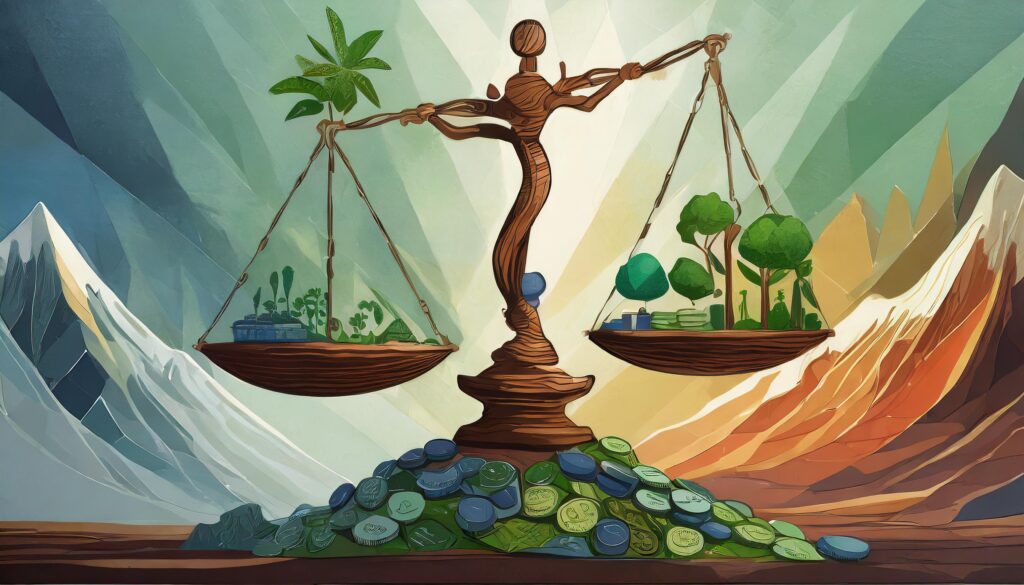The Black Economic Agenda Under Scrutiny – Tackling the Intertwined Issue of Poverty, Inequality, and Unemployment.

South Africa’s economy is not in crisis – it is in contradiction. For every statistical gain in GDP, millions are pushed deeper into poverty. For every policy on transformation, a parallel reality of exclusion persists. The Black Economic Agenda was never just a call for access, it was a demand for redesign. Yet today, that agenda stands at a crossroads: co-opted by elite interests on one side, and eroded by institutional fatigue on the other. If we are serious about equity, we must return to the original purpose – to rewire the economy so that it works for the majority, not despite them.
The labour market is in disarray. Official unemployment figures reached 32.9% in the first quarter of 2025, with broader measures that include discouraged jobseekers surpassing 43%, and youth unemployment is significantly higher. These statistics represent more than mere numbers, they reflect the everyday experience of millions of Black South Africans who endure a persistent lack of decent employment.
Poverty indicators highlight the severity of the crisis. Stats SA’s national poverty lines reveal that a large portion of the population resides below thresholds that barely meet food and essential non-food needs; inflation and weak economic growth have diminished real incomes for households.
At the same time, South Africa’s inequality, ranking among the highest globally according to the Gini index, shows only slight improvement over the past generation. Wealth remains highly concentrated; recent global analyses consistently rank South Africa among the countries with the most unequal income distributions. Any policy that does not alter ownership, income distribution, and social protections will sustain the structural exclusion faced by the Black majority.
Three interlinked failures define South Africa’s current Black Economic Empowerment.
- Structural Stagnation – Despite the B-BBEE framework, transformation has been largely superficial. Small Black elite has emerged, but ownership and control of productive assets remain concentrated. Reports from the B-BBEE Commission and corporate disclosures reveal minimal progress in enterprise development and industrial diversification benefiting working-class communities.
- Jobless growth and weak inclusivity – Persistent low GDP growth, deindustrialisation, and mass unemployment have eroded gains made through empowerment policies. Infrastructure investments and foreign-backed funding may relieve short-term constraints, yet they fail to address the systemic roots of joblessness and underdevelopment.
- Policy incoherence and elite capture – Transformation requires decisive, state-led industrial and labour strategies. However, policy fragmentation, corruption, and the domination of private capital have undermined redistribution ambitions. President Cyril Ramaphosa’s repeated calls for reform ring hollow to citizens who see little evidence of political will or tangible change.
Political and ideological divides further complicate the debate. The Economic Freedom Fighters (EFF) calls for expropriation and nationalisation to confront racialised exclusion, while the Democratic Alliance (DA) promotes market-driven growth and governance reforms. Civil society and community groups, meanwhile, demand urgent relief from unemployment and exploitation.
According to liberal’s perspective, the Black Economic Agenda’s failures are rooted in its technocratic, market-centered orientation, which reproduces capitalist hierarchies. Empowerment has too often meant elite shareholding, not worker ownership or social upliftment.
To realign transformation with social justice, six key interventions stand out:
- Expand public employment and care programs with Jobs Guarantee paying living wages.
- Socialise key sectors (energy, logistics, and finance) through public or majority-stake ownership to prioritise jobs and localisation.
- Advance worker co-ownership and cooperatives with real governance rights.
- Institute progressive taxation to fund universal basic services, like education, healthcare, and transport.
- Link education and industry, building skills for manufacturing, green industries, and agro-processing.
- Strengthen oversight of B-BBEE and procurement to eliminate rent-seeking and elite capture.
The Black Economic Agenda must now be reframed as a national imperative – not a policy accessory. It must drive how budgets are allocated, how institutions are restructured, and how leadership is held accountable. This is no longer a matter of debate; it is a matter of design. If transformation is to mean anything, it must deliver ownership, control, and market access at scale – not eventually, but urgently! Let this conference mark the line in the sand. We are not here to plead for inclusion; we are here to set the terms of a shared and just economy. That is the mandate. And we intend to deliver it.

About the Author
Andile Mngadi is a dedicated public servant and emerging legal professional with a strong foundation in governance, public administration, and law. His leadership spans law enforcement, corporate governance, and political activism, equipping him with a sharp ethical compass, sound risk management insight, and a deep commitment to stakeholder inclusion.
A champion of transformative governance, Andile brings a strategic lens to boards and institutions advancing sustainable development. He currently serves on the Policy and Research Committee of the Black Management Forum.






Responses